by Lisa Cooke | Nov 17, 2017 | 01 What's New, Genealogy Giants Websites, Records & databases
Enjoy millions of new records from the ‘Genealogy Giants’ websites this week: Ancestry, FamilySearch, Findmypast, and MyHeritage! New collections are now available for England, Ireland, the Netherlands, and Denmark. Also new are two collections of WWII Holocaust records.
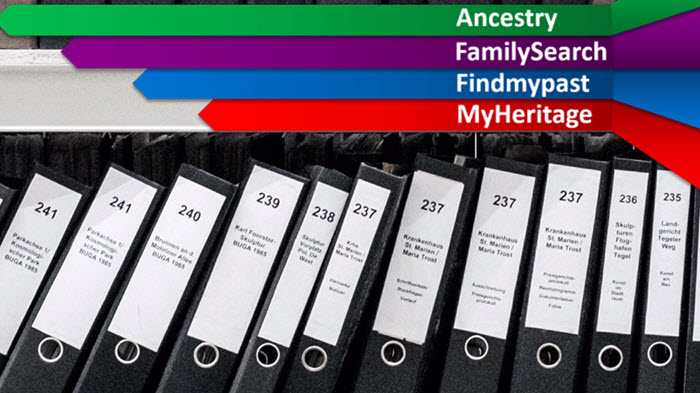
England Records at Findmypast & Ancestry
A massive amount of new records at the ‘Genealogy Giants’ websites were published this week. First up are millions of new English records collections. We’ll start with Findmypast’s new databases:
Surrey, England
- Lay Subsidies 1524-1645: early taxation records from the Tudor and Jacobean periods.
- Court Cases 1391-1835: The records contain cases from four courts and will give you the necessary references for accessing the original records in The National Archives.
- Wills & Probate Index, 1470-1856: The area covered includes the old county of Surrey in the southeast of England, which contains parts of South London.
British Army Records
- Commonwealth War Graves Commission Debt Of Honour: Transcripts will reveal when your ancestor died, their rank, regiment service number, and age at death.
- British Armed Forces, Roman Catholic Registers: The registers comprise records for the British Army, Royal Air Force, and Royal Navy stationed at home and abroad between 1836 and 1975. You can also browse the original registers for this collection.
- British Army Lists 1839-1946: Includes details such as birth date, rank, and unit. You may also browse by year and title.
- East Surrey Regiment 1899-1919: Spanning the Boer War and the First World War, this index may reveal rank, regiment, and battalion, as well as whether your ancestor was wounded or received a medal.
- Railwaymen Died in The Great War: This index of records comes from the National Railway Museum website and may contain details of your ancestor’s pre-war career, military service, and death.
Next, we head to Ancestry for even more new English record collections.
Lastly, FamilySearch has a new collection of Essex Parish Registers, 1538-1997. This collection contains christening, marriage, and burial entries.
Ireland – Findmypast
New at Findmypast for Ireland are British Army, Irish Regimental Enlistment Registers 1877-1924. This collection has enlistment registers from five Irish regiments serving in the British Army. The regiments included in these records are Connaught Rangers, Leinster Regiment, Royal Dunlin Fusiliers, Royal Irish Regiment, and Royal Munster Fusiliers.
A new Irish newspaper title has also been added at Findmypast: the Carrickfergus Advertiser 1884 – 1919. The collection currently contains over 1,300 issues and will be updated further in the future.
Netherlands Public Records at FamilySearch
New at FamilySearch: Netherlands Archival Indexes, Public Records. This collection contains nearly 3 million records that cover events like population registration, emigration and immigration, military enrollment and more.
Denmark – 1930 Census Free at FamilySearch
The Denmark Census, 1930 is now available for free at FamilySearch! “Commonly indexed fields include principle name, locality data, gender, marital status, and relationship to head of household.” The images and index were provided in partnership with MyHeritage.
World War II Holocaust Records and MyHeritage and Ancestry
New at MyHeritage are Auschwitz Death Certificates, 1941-1943. Information listed includes name, birth date, death date, birthplace, residence, and religion. The information originates from the Auschwitz Sterbebücher (Death Books).
Ancestry also has a new collection of Romania select Holocaust Records 1940-1945 (USHMM). This collection is primarily in Romanian, but may also be in Hungarian. It was indexed by World Memory Project contributors from the digitized holdings of the United States Holocaust Memorial Museum.
Get the most out of the top genealogy records websites
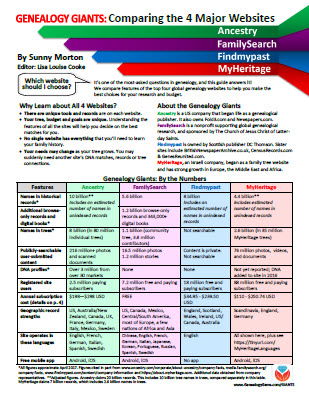 “Which genealogy records membership website should I use?” It’s one of the most-asked questions in genealogy. There are so many features on each site–and an apples-to-apples comparison is laden with challenges. But Genealogy Gems Contributing Editor Sunny Morton has the answers for you in the jammed-packed Genealogy Giants cheat sheet. Use it to quickly and easily compare all of the most important features of the four biggest international genealogy records membership websites: Ancestry.com, FamilySearch.org, Findmypast.com, and MyHeritage.com. Then consult it every time your research budget, needs or goals change. Tables, bulleted lists, and graphics make this guide as easy to use as it is informative. Click here to learn more and grab your copy.
“Which genealogy records membership website should I use?” It’s one of the most-asked questions in genealogy. There are so many features on each site–and an apples-to-apples comparison is laden with challenges. But Genealogy Gems Contributing Editor Sunny Morton has the answers for you in the jammed-packed Genealogy Giants cheat sheet. Use it to quickly and easily compare all of the most important features of the four biggest international genealogy records membership websites: Ancestry.com, FamilySearch.org, Findmypast.com, and MyHeritage.com. Then consult it every time your research budget, needs or goals change. Tables, bulleted lists, and graphics make this guide as easy to use as it is informative. Click here to learn more and grab your copy.
Disclosure: This article contains affiliate links and Genealogy Gems will be compensated if you make a purchase after clicking on these links (at no additional cost to you). Thank you for supporting the free Genealogy Gems podcast and blog!
by Lacey Cooke | Dec 8, 2017 | 01 What's New, Ancestry, Canadian, German, Records & databases
Big records updates at the Genealogy Giant website Ancestry.com! Brand new collections of birth, marriage, death, and census records for Canada were added this week, along with a Remembrance Book for the 100th anniversary of the Halifax explosion. Additionally, new vital records are now available for Germany.
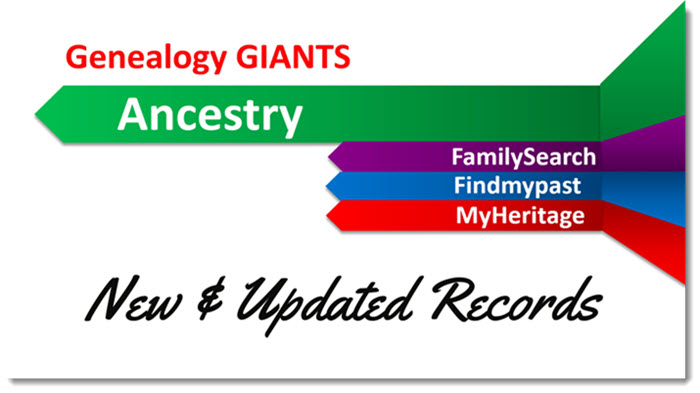
Canada – Birth, Marriage, Death, and Census Records
This year, December 6th marks the 100th anniversary of the Halifax explosion, which was a devastating maritime disaster in Nova Scotia, Canada. Ancestry has recently made available the ‘Halifax Explosion Remembrance Book,’ an online searchable database with detailed information for 1,946 casualties – more than 300 of whom are recently-confirmed and identified victims.
Ancestry also had a huge update of vital and census records this week for Canada:

AncestryDNA for Canada is on sale for just $99! Reg. $129 CAD. Sale ends 12/24/17. Excludes tax & shipping.
Alberta. Explore the new Births Index, 1870-1896, the Deaths Index, 1870-1966, and the Marriages Index, 1898-1942. Note that the marriage index is slightly irregular, in that each image only includes either the bride or the groom and their marriage year.
Newfoundland. Search baptisms and marriage records in the new collection of Church Records, 1793-1899. You’ll also find records from various churches in Newfoundland in the Births, Marriages, and Deaths, 1757-1901 collection, and the Births, Marriages, and Deaths, 1850-1949 collection. Also available are the 1921 Census, the 1935 Census, and the 1945 Census. Those databases originate from the Newfoundland Department of Tourism, Culture, and Recreation.
New Brunswick. New vital records collections start with Births and Late Registrations, 1810-1906. Then you’ll find Marriages, 1789-1950, which include registers, certificates, delayed registrations, and returns. And Deaths, 1888-1938 is also now online.
Prince Edward Island. Baptisms, Marriages, Burials, 1780-1983 is comprised of church records for Prince Edward Island. The Marriage Registers, 1832-1888 collection was created from newspapers, church records, and other sources that may or may not be provided. The Death Card Index, 1810-1913 contains pictures of the index cards from the Prince Edward Island Provincial Archives.
Nova Scotia. Lastly, Antigonish Catholic Baptisms, Marriages, and Burials, 1823-1905 are now available for Nova Scotia. The earlier registers are written in paragraph format, while later registers are typically pre-printed forms with information filled in by hand.
German Vital Records
Lots of new vital records collections for Germany recently became available, starting with Waldshut-Tiengen, Births, Marriages, and Deaths, 1870-1945. This collection of civil registers includes records from 9 additional communities which are today boroughs of Waldhut-Tiengen.
Next are Erfurt, Germany, Births, 1874-1901 and Marriages, 1874-1900. Additional events from the life of the child or the couple were sometimes recorded later on in the margins, but have not been indexed.
You’ll also find Zschopau, Germany, Births, 1876-1914, Marriages, 1876-1920, and Deaths, 1876-1958 now at Ancestry. It may be helpful to note that during the time period of these collections until 1918, Zschopau belonged to the Kingdom of Saxony.
Finally, Traunstein, Germany, Births, 1876-1905, Marriages, 1876-1934, and Deaths, 1876-1978 are also online, where you’ll find names, dates of birth, dates of deaths, witnesses, informants, parents, signatures, and other information.
Get the most out of Ancestry!
 Getting started on Ancestry.com can be a little daunting. As one of the world’s top genealogy websites, it’s packed with information about millions of people–perhaps including your ancestors. These step-by-step instructions will help you start building your family tree and learning more about your heritage. Click to read our recent article Getting Started on Ancestry.com.
Getting started on Ancestry.com can be a little daunting. As one of the world’s top genealogy websites, it’s packed with information about millions of people–perhaps including your ancestors. These step-by-step instructions will help you start building your family tree and learning more about your heritage. Click to read our recent article Getting Started on Ancestry.com.
Disclosure: This article contains affiliate links and Genealogy Gems will be compensated if you make a purchase after clicking on these links (at no additional cost to you). Thank you for supporting Genealogy Gems!
by Lisa Cooke | Aug 28, 2013 | 01 What's New, Canadian, Findmypast, Records & databases
 If you have Canadian roots, you’ll want to know about a rich new resource now at Findmypast.com. It’s the Canadian Books collection, with 71,000 pages of keyword-searchable histories, vital records, directories, published genealogies and more.
If you have Canadian roots, you’ll want to know about a rich new resource now at Findmypast.com. It’s the Canadian Books collection, with 71,000 pages of keyword-searchable histories, vital records, directories, published genealogies and more.
“Dating back to the 1600s, the Canadian Books boast 71,000 pages of items such as military, religious, occupational and immigration records, business directories, published genealogies and BMDs [births, marriages and deaths],” states a Findmypast.com press release. “The books feature a sizeable amount of military records with various nominal rolls and rolls of honour relating mostly to the First World War, such as The Royal Montreal Regiment, 14th Battalion, University of Toronto Roll of Service buy heartworm medication online canada 1914-1918 and 31st Canadian Infantry CEF 1914-1919.”
Though the core content is Canada, the reach of this 200-volume collection extends outside Canada’s boundaries. “With titles such as Sketches of Irish soldiers, The Scotch-Irish of California, and German-Canadian Folklore, the collection is valuable for people with Canadian ancestry and those who can trace their origins back to the UK or Europe.”
This collection comes from the Archive CD Books Canada Project, which has gathered, renovated and reproduced Canadian historical books, documents and maps for over a decade. The 200 volumes are searchable through all Findmypast international sites with a World Subscription and in the U.S. and Canada resources at Findmypast.com.
by Lisa Cooke | Sep 30, 2014 | 01 What's New, Ancestry, Census, Collaborate
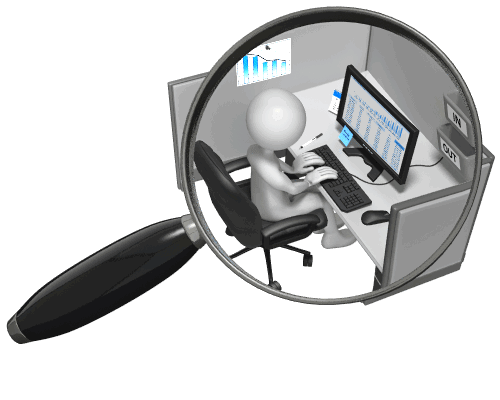 There are lots of ways to find historical records about your ancestors online. Did you know there are also ways to learn who else has added that record to their trees–or who else is researching the same people you are? Here are two ways:
There are lots of ways to find historical records about your ancestors online. Did you know there are also ways to learn who else has added that record to their trees–or who else is researching the same people you are? Here are two ways:
1. On Ancestry.com, when you are looking at an image of a record, there’s a sidebar to your right called “Related Content.” Click on it. Below other suggested records you will see a list showing anyone who has saved this record to their trees. You’ll see a link to that username and you can contact them. This is what it looks like: 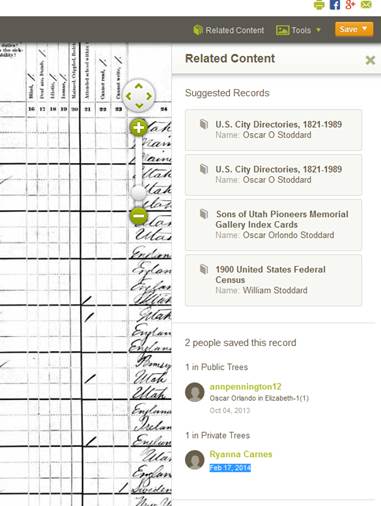 2. On LostCousins.com, you can enter the names of relatives whose names appear on specific censuses. Their database will search for others who are looking for the same people. This is a great resource for people with British Isles roots, as the site originates from there. Here are the censuses they support:
2. On LostCousins.com, you can enter the names of relatives whose names appear on specific censuses. Their database will search for others who are looking for the same people. This is a great resource for people with British Isles roots, as the site originates from there. Here are the censuses they support:
- England and Wales, 1841, 1881, 1911
- Scotland, 1881
- United States, 1880, 1940
- Canada, 1881
- Ireland, 1991.
Basic membership at LostCousins.com is free, but has limited functionality. You can only contact new people during certain windows of time during the year. With a £10 annual subscription, you can make new contacts anytime. 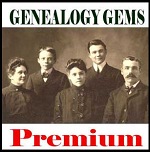 Looking for more ways to find living relatives? Genealogy Gems Premium members can click here to access my full-length video class, Unleash Your Inner Private Eye to Find Living Relatives. Not a member? Click here to join.
Looking for more ways to find living relatives? Genealogy Gems Premium members can click here to access my full-length video class, Unleash Your Inner Private Eye to Find Living Relatives. Not a member? Click here to join.
by Lisa Cooke | Jun 24, 2016 | 01 What's New, Records & databases
We have a new title for our Friday series, but it is still your go-to list for new and updated genealogical records! Here is this week’s suggestions for Australia, North Carolina, and Florida. Happy hunting!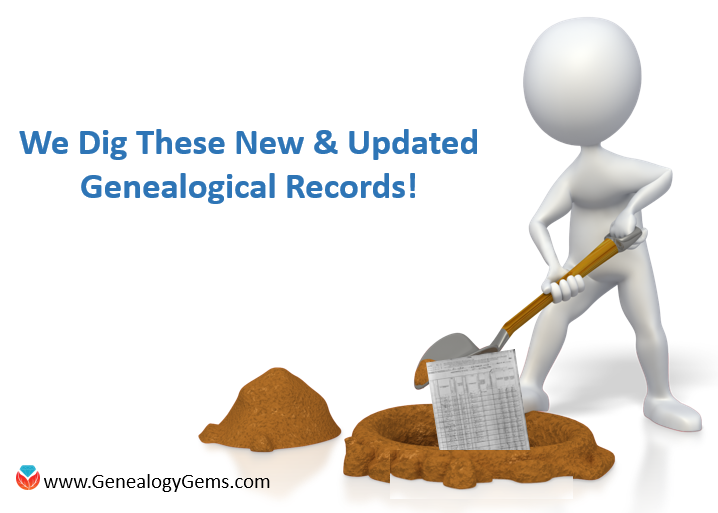
AUSTRALIA – MILITARY
Fold3.com has added WWI Service Records for Australian soldiers to their website. This collection contains service dossiers for the Australian Imperial Force, Australian Naval and Military Expeditionary Force, Royal Australian Naval Bridging Train, Australian Flying Corps, and the Australian Army Nursing Service. It also has depot records for those serving at home. Records found in this collection are administrative files that only provide a general overview of the individual’s service. Further information may include details about casualties, wills, medals, pensions, mail, and personal effects.
UNITED STATES – NORTH CAROLINA – LAND GRANTS
Ancestry.com now offers the North Carolina, Land Grant Files for 1693-1960 for those researching this area. Organized by county name, these records offer warrants, surveys, and sometimes a hand drawn map. Additional information may include:
- Certificate number
- County
- Name of grantee
- Number of acres
- Date the grant was issued
- Entry Book and page number
- Location description
UNITED STATES – FLORIDA – PASSENGER LISTS
Florida, Passenger Lists, 1898-1963 is a record collection provided by Ancestry.com. It is an index-only of passenger lists of ships and airplanes arriving from foreign ports to various Florida ports. The names found on this index are linked to images of the passenger lists, which were copied from the NARA microfilm. Information you might find on these indexed records include:
- Given name and surname of passenger
- Age, sex, and ethnicity/nationality
- Birthplace and last residence
- Name of friend or relative
- Final destination
- Port of departure and/or arrival
- Date of arrival and/or departure
RESEARCH TIP:
Many passenger list forms from the twentieth century are two pages long. You should click the Previous and Next buttons to make sure you are seeing the all the information.

 “Which genealogy records membership website should I use?” It’s one of the most-asked questions in genealogy. There are so many features on each site–and an apples-to-apples comparison is laden with challenges. But Genealogy Gems Contributing Editor Sunny Morton has the answers for you in the jammed-packed Genealogy Giants cheat sheet. Use it to quickly and easily compare all of the most important features of the four biggest international genealogy records membership websites: Ancestry.com, FamilySearch.org, Findmypast.com, and MyHeritage.com. Then consult it every time your research budget, needs or goals change. Tables, bulleted lists, and graphics make this guide as easy to use as it is informative. Click here to learn more and grab your copy.
“Which genealogy records membership website should I use?” It’s one of the most-asked questions in genealogy. There are so many features on each site–and an apples-to-apples comparison is laden with challenges. But Genealogy Gems Contributing Editor Sunny Morton has the answers for you in the jammed-packed Genealogy Giants cheat sheet. Use it to quickly and easily compare all of the most important features of the four biggest international genealogy records membership websites: Ancestry.com, FamilySearch.org, Findmypast.com, and MyHeritage.com. Then consult it every time your research budget, needs or goals change. Tables, bulleted lists, and graphics make this guide as easy to use as it is informative. Click here to learn more and grab your copy.
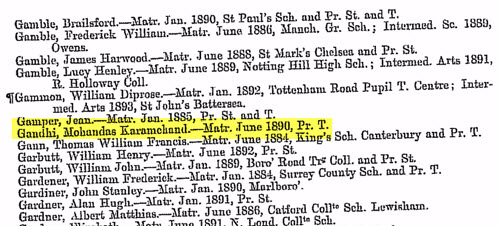


 Getting started on Ancestry.com can be a little daunting. As one of the world’s top genealogy websites, it’s packed with information about millions of people–perhaps including your ancestors. These step-by-step instructions will help you start building your family tree and learning more about your heritage. Click to read our recent article
Getting started on Ancestry.com can be a little daunting. As one of the world’s top genealogy websites, it’s packed with information about millions of people–perhaps including your ancestors. These step-by-step instructions will help you start building your family tree and learning more about your heritage. Click to read our recent article 



